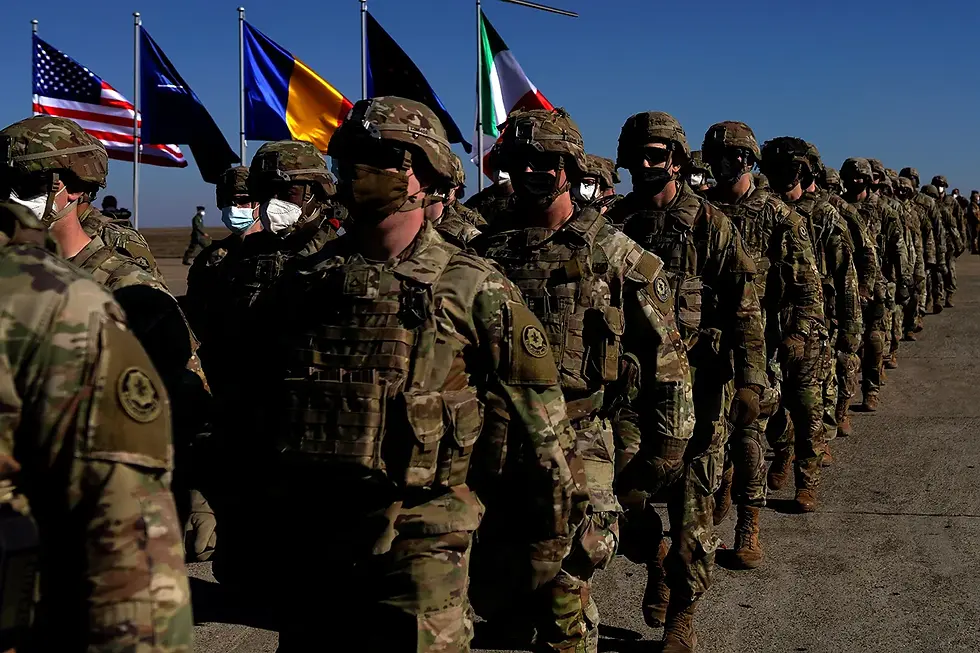Optimizing Choices and Limits of Forecasting: Verdun 1916
- Nathan Decety

- Mar 13, 2020
- 4 min read
Updated: Jan 17, 2021
Summary: The high level strategic choices facing a French general in 1916 before the start of the battle of Verdun showcase the extreme limitations of the idea that there is an 'optimal choice.' It also reveals the impossibility of forecasting, for many choices could be "correct," and the dynamics of the situation in which they are made vary extremely quickly.
Say it is 1916, just before the massive battle of Verdun (and the Somme) on the Western front commenced. It was a massive battle in which almost a million French and Germans lost their lives, the implementation of von Falkenhayn's desire to "bleed out the French army" through attrition, thereby winning the war (since England had a tiny non-substantial army, Italy was bottled up behind the alps, and Russia was teetering).
Assume that you are a French general, deciding on how to allocate resources before a battle. Assume also that your resources are relatively fixed; you can't just summon up 120K men or 400 artillery pieces out of nowhere. At this point, you do not have intelligence on where the Germans will attack or if they will attack, or if you should attack.
If you were attacking something in WWI, a lot of preparation needed to happen, and vast quantities of men and materiel had to be assembled. If you prepare to allocate resources, you want to be careful that you don't over-allocate because it could leave you vulnerable some where else. If the Germans are going to attack, you need to know where and when so you can adequately prepare or ward them off.
Switch to the German side, Falkenhayn wants to attack, he has to build up his forces. He has two options: build up really slowly underground and/or at night under covers, or do so above ground quickly. Preparing at night or underground will take a lot longer. A benefit of going quickly is that the conditions determined to be good will only be good for so long, they can change. So speed is often of the essence (i.e. you could be attacked, the place you’re attacking could be reinforced, etc.) But to do things above ground without the enemy knowing, you have to make sure they can’t see you, but the French have reconnaissance aircraft. Now you decide to delete all those aircraft and therefore mount a powerful air campaign. The skies are now clear. Let’s say that if you were the French command and you used the ferocity of german aerial attacks and control over the sky as the heuristic that an assault will follow. You think, "because they want to build up without us knowing about it, the relative balance of power in the air over a given area is a sign that they are preparing to attack in that area." First, the Germans might know that this is your measure, so they start doing that randomly in places to trick you once they realized it. But if they didn’t and the French figured it out correctly, the French now have another larger set of choices – should their counter preparations be made in secret, so that they can kill a lot of Germans? Should they ward off the attack (or try to) by launching an assault in a different area that may now be vulnerable because the Germans are clearly concentrated at Verdun? Should they do nothing – pull back and let the Germans use all their supplies on a empty shell, then attack and wipe them out since there is no more materiel available to sustain an assault? Second once the reconnaissance thing is figured out, the whole aerial war and associated recon attempts will become ferocious everywhere and it will no longer be a likely signal of an attack.
As it turns out, a British naval attache found out at a cocktail party in Oslo that there was going to be an attack at Verdun, so exposing yourself to accept information from as many disparate sources as possible is the best option, sifting them to figure out which is likely and – if possible – to cross reference it to see if there’s a pattern may increase your chance of being right. Of course you always have to keep in mind that the enemy may be trying to trick you, so consider if something is a trap by looking at alternatives, or by playing your cards wisely if you think an assault and a trap is equally likely.
Overall however, it is clear that the dynamics are in fluctuation constantly, and there is no "right," no "optimal" option. Every one carries risks, pros and cons, and none of them are guarantees of success. Every action you take can lead to a large set of potential enemy reactions. This is also a prime example of the limits on forecasting: if there are no superior choices, the rules are changing continuously, and every action causes a large number of potential reactions (none of which might be followed), then you can't really model that out!



Comments